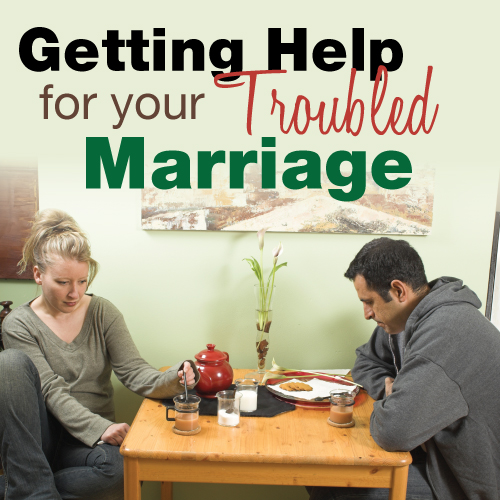How to Help a Marriage in Trouble

Over our years as a married couple we’ve had numerous occasions when people have approached us about their troubled marriage. It hasn’t always been in the context of being the facilitators at the marriage seminar either – sometimes it’s just a friend looking for support or a family member needing a sounding board.
What we’ve learnt is that long before a marriage ends there is generally a prolonged period when one or both spouses are sending distress signals. Sometimes it’s obvious, such as an open plea for confidential advice, but mostly the signals take a more subtle form, such as cynical jokes or complaints about the other.
When a friend or family member presents with a troubled marriage, how you, as a confidant, respond can make a critical difference to whether that marriage sinks or survives. Here are some tips to be a constructive help to the marriage.
- Listen. Really listen. Don’t just let the other person blab on without interruption, but listen actively and attentively. Paraphrase what the other is saying so that they know they’ve been heard and therefore don’t have to repeat it but can move forward in thinking the issue through. Paraphrasing also helps them to ‘hear’ what they are saying from a different perspective and many will realise that their grievances are exaggerated or unreasonable when they hear it from your lips.
- Empathise. Connect with the emotions and needs of the other. Listen for and identify not just the obvious emotions expressed by the other, which are often the ‘hard’ emotions of anger and frustration. Rather, seek out the softer emotions beneath the anger like sadness, disappointment, hurt or fear. When you connect with the softer emotions, it allows the other to own them and to truly feel understood.
- Balance. Remember that you are only hearing one side of the story. There’s always another perspective and taking sides is not only unfair to the absent spouse, it is an act of aggression towards the marriage itself. Invite them to think about the situation from the other’s perspective. Encourage them even though they will likely find it hard to do, or if they are really stuck, offer your best guess of how the other might be seeing the situation.
- Affirm. Remind your friend of all the personal strengths and qualities they have that can help them bring the best, most noble part of themselves to the situation. Point out specific qualities like honesty, courage, authenticity, kindness, compassion and say how they can draw on those when they relate to their spouse. People want to live up to our expectations and they want to be the best person they can be – remind them of their capacity to do that.
- Pray. Finally, pray. Pray for them. Pray with them. Pray for all the spiritual strengths and help they need to bring big-hearted love to the situation. Even in situations of abuse or violence when a period of separation is required, it is important for their healing and ongoing emotional health that they act with integrity in their decisions and avoid inflicting unnecessary harm on those involved.
We all hate to see a loved one in pain and distress. It can be tempting in these marital SOS situations to comfort them by affirming their perspective and reinforcing their grievances. It’s important to remember that we need to be a friend to their marriage and not just to them.




